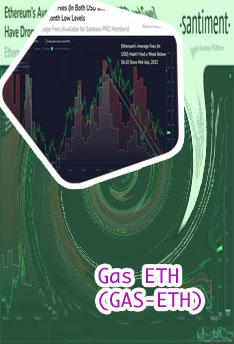Ethereum gas
Why Do We Need Gas?
Tl;Dr: Interacting with Ethereum requires the network to spend “gas.” As a user, you need to pay “gas fees” to compensate the network for using its computational resources. Eth gas prices right now To convert to ETH: Transaction fee = 378,000 gwei * 0.000000001 ETH/gwei = 0.000378 ETH

Current gas fees ethereum
Gas fees are denominated in “gwei,” a unit of Ether (ETH), which is Ethereum’s native cryptocurrency. Gwei is a contraction of “giga” and “wei,” representing 0.000000001 ETH. When initiating a transaction or a smart contract, users set a gas price in gwei that they are willing to pay for the computational resources required to process their request. Miners then prioritize transactions with higher gas prices, as they are incentivized to include transactions with higher rewards. When are Ethereum Gas Fees the Lowest? First, Ethereum virtual machine and the smart contracts that exist on it run on Solidity code. Every line of this code needs a little bit of gas to be executed. Think about your car and actual gas, the fuel: you’ll need a certain amount of gas to get to your destination of choice, and you have to buy this certain amount of gas at the gas station before parting. In a similar fashion, you have to fill up the “gas tank” of your transaction before it starts to be processed.
Introduction to Ether, Gas Limit, Gas Price, and Transaction Fees
Due to increased network activity, ETH gas limits are set high. Users can set gas limits as per requirements. Non-utilized gas fees are refunded via EVM. Comparison of Ethereum gas fees with other cryptocurrency transaction fees First of all, we need to understand what Ethereum gas fees are. To reduce current Ethereum gas fees, users must understand the key factors influencing the current ETH gas fees. Only with good knowledge users can answer the question: when are Ethereum gas fees lowest?
Ethereum gas
Tether gas fee for transfer costs 46.1k to 58.4k gas Will EIP-1559 Reduce Gas Fees? One such solution is Ethereum 2.0. This upgrade aims to make the Ethereum network faster and more efficient, which could help reduce gas fees. It's like transforming that pricey, popular restaurant into a more affordable, still popular, fast-food chain. This could make Ethereum accessible to more people, potentially driving further growth and development. So, in spite of the current gas fee challenges, the future of Ethereum looks promising.






